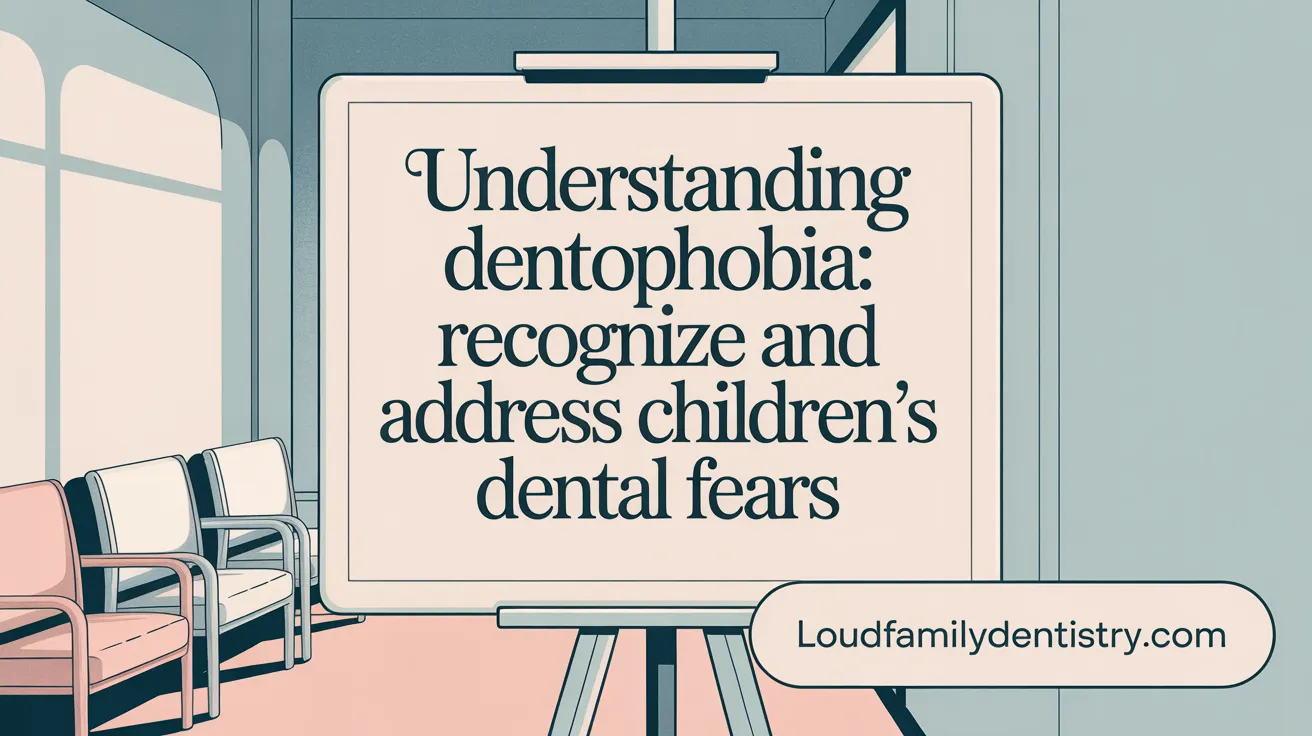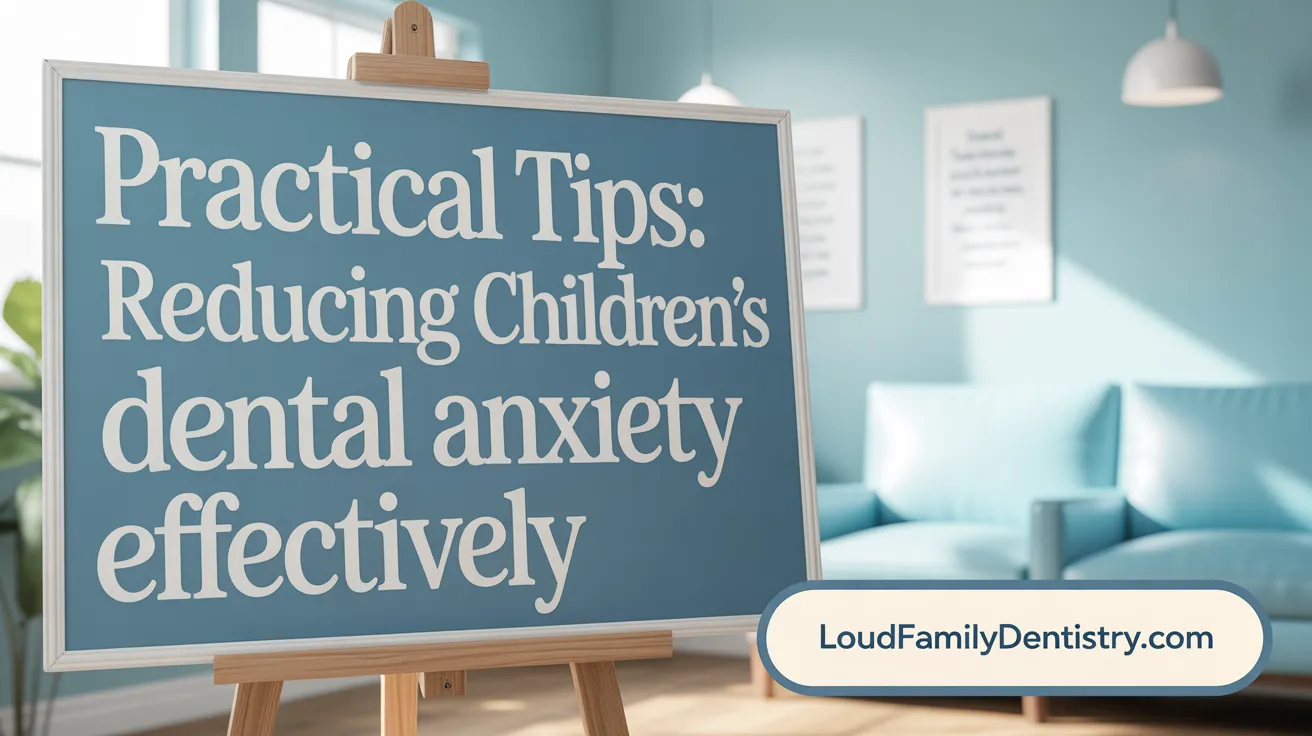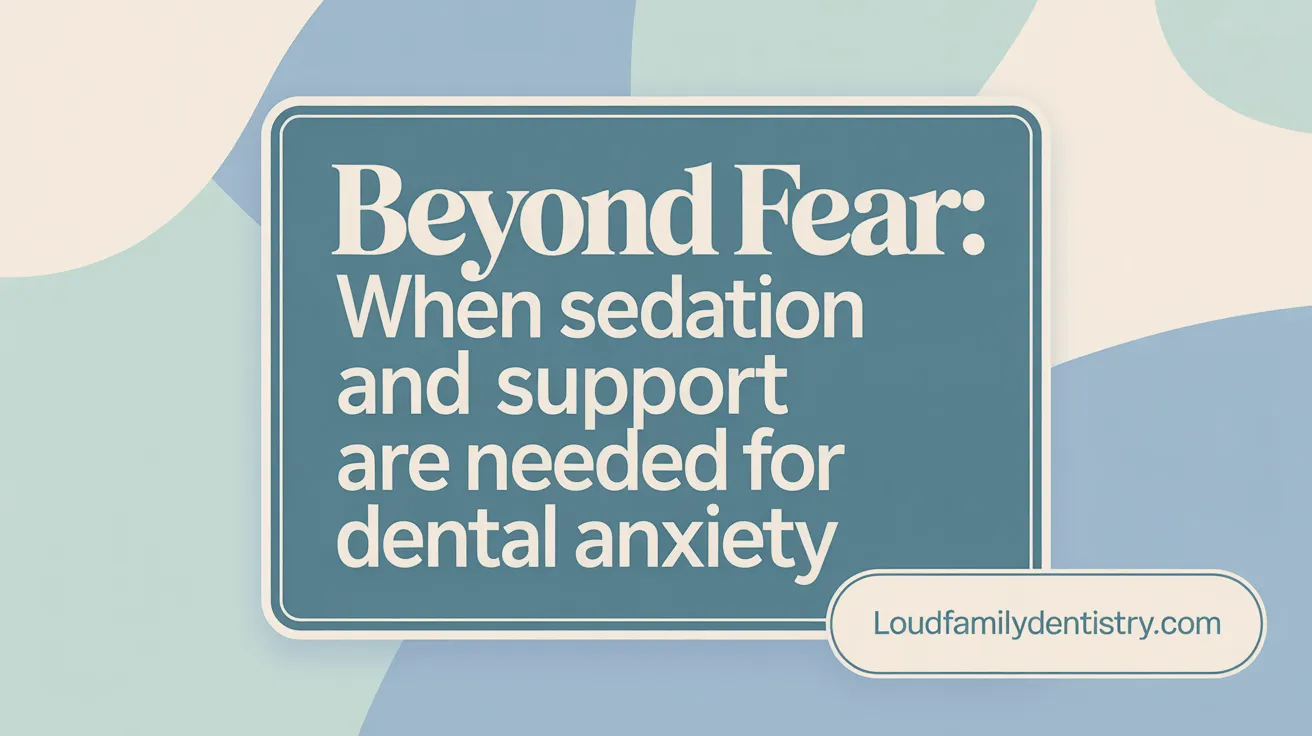Understanding and Addressing Children's Fear of the Dentist
Fear of the dentist, medically known as dentophobia, is a common anxiety disorder among children that can significantly impact their oral health and well-being. This article explores the roots of dental fear and offers practical, well-researched strategies that parents and caregivers can use to foster positive and cooperative pediatric dental experiences from an early age.
Recognizing Dentophobia and Its Causes in Children

What is dentophobia and how does it affect children?
Dentophobia is a specific phobia marked by an intense fear of dentists and dental treatments. In children, this fear is not just nervousness; it can escalate into panic attacks, refusal to cooperate, and avoidance of dental visits. This avoidance can lead to poor oral health, resulting in pain and more complicated dental problems over time. Learn more about Dentophobia in children and its effects.
What commonly triggers dental fear in children?
Several triggers can spark dental anxiety in children, including:
- Fear of pain during procedures
- Loud noises from dental instruments
- Fear of needles and the sensations associated with injections
- Unfamiliar sights and smells in dental offices
- Past traumatic experiences related to dental care
- Separation anxiety from parents during appointments
- Sensory sensitivities to light, sound, or touch in the clinic environment
For detailed information on Dental anxiety triggers in children and how to manage them, visit this resource.
Symptoms and impact of untreated dental fear
Dentophobia in children manifests as emotional and physical symptoms such as sweating, heart racing, nausea, crying, and clinging to parents. Beyond the distress during visits, untreated fear often results in irregular dental care. This can lead to worsened oral hygiene, increased risk for cavities and infections, and negative behavioral patterns around dental health. Understand the Symptoms and impact of dental fear and why early intervention is vital.
Addressing dentophobia early is crucial to prevent these issues and support children in developing healthy attitudes and behaviors toward dental care. Explore Overcoming dental anxiety and strategies for helping children cope.
The Importance of Early and Positive Dental Visits

Why is starting dental visits early important for children?
Beginning dental visits early, ideally by the emergence of the first tooth or by the child's first birthday, plays a crucial role in establishing dental health habits. Early visits help children become familiar with the dental environment, reducing fear and anxiety related to dental care. This early exposure builds trust, creates positive associations with dental visits, and helps prevent the development of dentophobia—a severe fear of the dentist.
How does regular attendance at dental check-ups affect children's dental fear?
Regular dental visits, recommended every six months, allow children to habituate to routine dental procedures. This frequent exposure lowers anxiety by making dental visits predictable and familiar. Over time, children learn to cooperate better with dental care providers, and their dental fear significantly decreases. See more on the importance of regular dental check-ups.
Building familiarity through early and consistent care
Starting dental care early encourages regular check-ups, which fosters a sense of comfort and trust between the child and dental professionals. Positive first experiences during these visits act as a defense against future dental anxiety, supporting lifelong oral health. Habituation through regular visits makes dental care a standard part of a child’s healthcare routine rather than a source of fear. Learn more about early dental visits benefits.
Preventing fear with positive dental experiences
When initial dental visits focus on friendly communication, gentle care, and a child-friendly environment, children are more likely to view dental care positively. This proactive approach helps prevent fear from taking root, making dental visits a more pleasant experience for both children and parents alike. For tips on creating positive dental experiences for children, visit the linked resource.
Practical Strategies to Reduce Dental Anxiety in Children

What communication methods help reduce children's dental anxiety?
Using positive and simple language helps ease a child's dental fears. Words like "clean" or "healthy" replace terms such as "pain" or "hurt" to create a friendlier atmosphere. The "tell-show-do" technique is effective: the dentist explains the procedure, demonstrates it on a toy or model, and then performs it on the child. This step-by-step approach demystifies dental treatment and reduces anxiety.
How can role-playing and familiar media support children's comfort with dental visits?
Role-playing dental visits at home using toys or stuffed animals helps children become familiar with what to expect. This playful preparation reduces fear by eliminating surprises. Additionally, watching child-friendly videos featuring beloved characters talking about dental care normalizes visits and boosts a child’s confidence.
Why is choosing a pediatric dentist beneficial for anxious children?
Pediatric dentists receive special training to care for children's unique dental needs and to manage their anxieties sensitively. Their offices often have colorful, engaging decor and equipment sized for children, contributing to a welcoming environment. These professionals use gentle communication techniques to help children feel safe and calm.
When should dental appointments be scheduled to minimize stress?
Scheduling appointments early in the morning when children are typically well-rested and have eaten significantly lowers anxiety. A fresh, energized child tends to be more cooperative and less overwhelmed during the visit.
Additional calming tools
Allowing children to bring comfort objects like stuffed toys or blankets provides emotional security. Playing calming music during treatments also helps some children to relax and stay calm throughout their dental care.
Behavioral and Calming Techniques for Dental Visits

What relaxation and distraction techniques help children stay calm at the dentist?
Teaching children simple relaxation methods such as deep breathing and visualization helps them manage their dental anxiety. These calming techniques encourage children to focus on their breath or imagine peaceful scenes, reducing stress during appointments. Additionally, distraction methods like listening to calming music, storytelling, or bringing along favorite toys provide engaging focal points that divert attention from potentially frightening dental procedures. For more strategies, see Relaxation training for dental visits and Distraction techniques for anxious children.
How does positive reinforcement support children's dental visits?
Positive reinforcement plays a crucial role in building a child's confidence and cooperation. Praising children for their bravery and good behavior both during and after dental visits fosters positive associations with the experience. Offering small rewards like stickers or toys further encourages children to view dental care as a positive activity, promoting willingness to return for future visits. Learn more about Positive reinforcement during dental visits and Positive reinforcement for dental bravery.
Why is granting children some control during visits beneficial?
Allowing children to make small decisions, such as choosing their toothpaste flavor or signaling when they need a short break, empowers them by giving a sense of control in an unfamiliar situation. This involvement helps reduce feelings of helplessness and anxiety, making the dental visit less intimidating and more manageable for the child. This approach is part of Empowering children during dental visits and Children controlling their dental experience.
These behavioral techniques, when combined, create a supportive and calming environment that improves children's dental experiences and helps establish lifelong positive attitudes toward oral health care. For comprehensive guidance, review Effective communication in pediatric dentistry and Helping children overcome dental anxiety.
When Professional Support and Sedation May Be Necessary

What options exist for children with severe dental anxiety?
For some children, dental anxiety goes beyond typical nervousness and becomes a severe phobia known as dentophobia. In these cases, professional intervention may be necessary to ensure that the child can receive essential dental care in a calm and safe manner. Sedation options available to help these children include nitrous oxide (laughing gas), oral conscious sedation, and intravenous (IV) sedation. These methods effectively reduce fear and discomfort, allowing dental procedures to proceed smoothly.
How is sedation administered and regulated for pediatric dental patients?
Sedation for dental procedures in children is carefully managed by trained dental professionals. Before sedation, a thorough health evaluation is conducted to assess risks and suitability. Continuous monitoring of vital signs such as heart rate and oxygen levels is maintained throughout the procedure to ensure the child's safety. Importantly, sedation can only be administered with informed parental consent and under strict safety protocols governed by professional guidelines. This safeguards the child's well-being while providing effective anxiety relief.
When is mental health support indicated for dental anxiety?
If a child's fear of the dentist is persistent, overwhelming, or interferes significantly with their everyday life, psychological support may be necessary. Mental health professionals can provide therapies like cognitive behavioral therapy (CBT) which help children address and manage their fears more constructively. Such interventions target the root causes of anxiety and build coping mechanisms, complementing dental strategies to allow children to gradually overcome dentophobia. Early recognition and referral can prevent avoidance of dental care and improve long-term oral health outcomes.
Fostering Positive Dental Experiences for Lifelong Oral Health
Helping your child overcome fear of the dentist is crucial in promoting their oral health and overall well-being. By starting dental visits early, employing positive communication and behavioral strategies, choosing a skilled pediatric dentist, and knowing when to seek professional support, parents can transform dental visits from a source of fear into a positive and empowering experience. Emphasizing calmness, reassurance, and reward encourages children to develop a healthy attitude toward dental care, laying the foundation for a lifetime of confident smiles.
